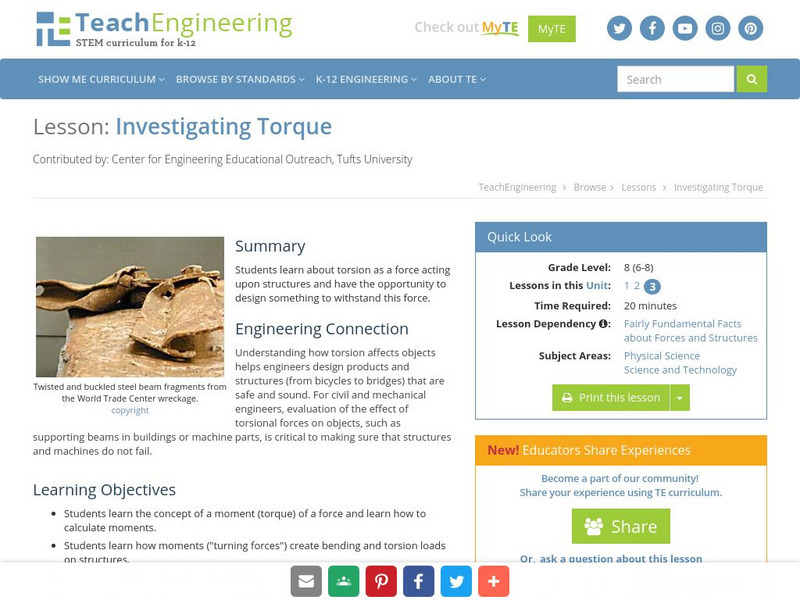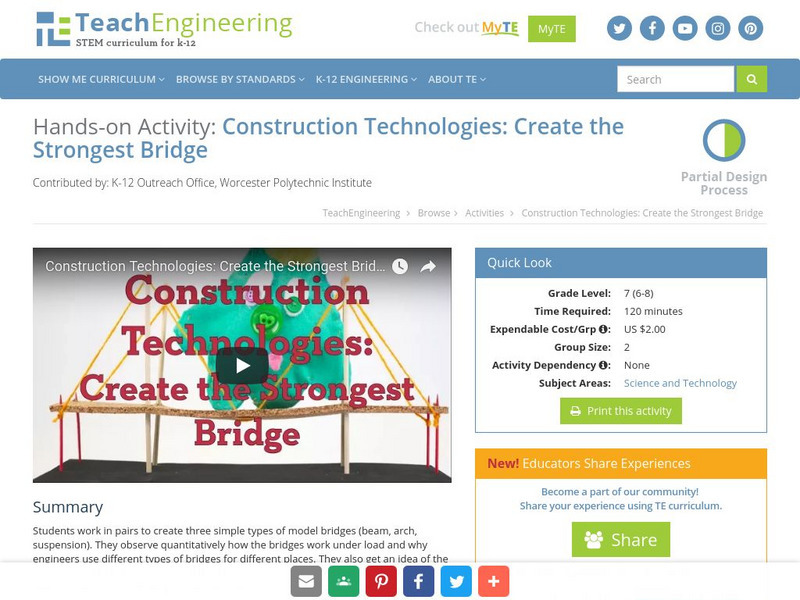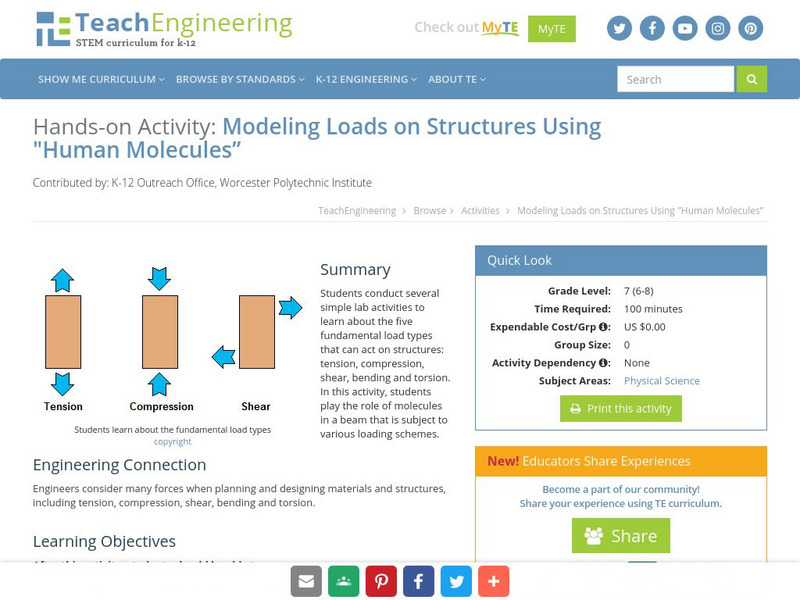Teach Engineering
Glue Sticks Bend and Twist
Stick this resource in the "Use" column. In the second installment of a six-part series, learners use glue sticks to demonstrate forces. Using glue sticks, instructors can demonstrate tension, compression, and torsion.
Teach Engineering
Investigating Torque
Torque--a teachable moment? Here's a lesson on torque (or moment) and variables that include size, reinforcement, structural bracing, and material that affect torque.
Curated OER
Stable and Unstable Structures
Students research three major bridge collapses. For this Physical Science lesson plan, students will sketch a bridge design for their area after their research. All bridge designs will be presented to the class to discuss strengths and...
Curated OER
Catapults
Young scholars discover the catapult. In this catapult lesson, students research the history of the catapult and how it works. They work in groups to build their own catapult using tootpicks, popsicle sticks, rubber bands, and spoons.
Curated OER
TE Activity: Testing Fundamental Loads
Middle schoolers experiment with the five fundamental load types that can act on structures. They use foam insulation blocks to which they apply the forces and draw the fracture patterns. They determine the telltale marks of failure that...
Curated OER
Kids Health: Testicular Injuries
Males generally don't like to think of the pain resulting from being hit in the testicles. Unfortunately it does happen and it's beneficial to know the steps one should take if this situation ever arises. Links to supplementing article...
TeachEngineering
Teach Engineering: Wimpy Radar Antenna
Students will reinforce an antenna tower made from foam insulation, so that it will withstand a 480 N-cm bending moment (torque) and a 280 N-cm twisting moment (torque) with minimal deflection. One class will be used to discuss the...
TeachEngineering
Teach Engineering: Investigating Torque
This lesson focuses on torsion as a force acting upon structures. Students will have the opportunity to design something to withstand this force.
TeachEngineering
Teach Engineering: Fairly Fundamental Facts About Forces & Structures
This lesson plan will introduce young scholars to the five fundamental loads: compression, tension, shear, bending, and torsion.
TeachEngineering
Teach Engineering: Construction Technologies: Construct the Strongest Bridge
In this activity, students will work in pairs to create three simple types of bridges. They will observe quantitatively how the bridges work under load and why engineers use different types of bridges for different places. They also will...
TeachEngineering
Teach Engineering: Forces on the Human Molecule
Students will conduct several simple lab activities to learn about the five fundamental load types that can act on structures: tension, compression, shear, bending, and torsion. In this activity, students will play the role of molecules...
TeachEngineering
Teach Engineering: Testing Fundamental Loads
Students will conduct several simple lab activities to learn about the five fundamental load types that can act on structures: tension, compression, shear, bending, and torsion. In this activity, students break foam insulation blocks by...
Technology Student
Technology Student: Forces and Moments
This site describes and illustrates the different forces that are applied to structures. A worksheet is also included on the page.
TeachEngineering
Teach Engineering: Glue Stick Activity
In this activity students will use hot glue gun sticks to show tension, compression and torsion.
PBS
Pbs Teachers: Suspension Bridge
Compare the strength and practical uses of beam bridges and suspension bridges. Investigate how the cable contributes to the stability and strength of a suspension bridge.
PBS
Pbs Teachers:hang in There
Explore different types of load supports and the forces that act upon them. Investigate how the cable contributes to the stability and strength of a suspension bridge.

















